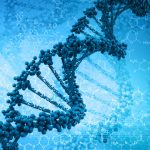 Cancer is a complex, yet debilitating disease that is seldom the result of a solitary mutation in a single gene. Instead, tumors tend to arise out of a complex relationship between a range of unusual hanges in the genome. These combinations can be unique to each patient, thus making it notoriously difficult to get to the bottom of.
Cancer is a complex, yet debilitating disease that is seldom the result of a solitary mutation in a single gene. Instead, tumors tend to arise out of a complex relationship between a range of unusual hanges in the genome. These combinations can be unique to each patient, thus making it notoriously difficult to get to the bottom of.
A team from the University of California San Diego have developed a new algorithm, called REVEALER, that is documented in a recently published paper.
Smarter cancer detection
The algorithm is designed to aid researchers in the identification of clusters of genetic variations that when pooled together could signify how cancer cells are activated, or indeed how they might respond to treatments.
The researchers have made the algorithm freely available to the scientific community via GenePattern.org in the hope that it will encourage further development by users.
“This computational analysis method effectively uncovers the functional context of genomic alterations, such as gene mutations, amplifications, or deletions, that drive tumor formation,” the researchers say.
The project has been tested out on The Cancer Genome Atlas, which is a database of genomic information that covers most known forms of cancer. The REVEALER algorithm was capable of identifying gene alterations involved in the activation of several key cellular processes that are known to play a part in tumor development.
Whilst some of these mutations were already known to us, some were novel. For instance, the team identified a new activating genomic abnormality for beta-catenin, which is a protein known to promote cancer.
The one down-side of the project is that it requires extremely high-quality genomic data, and a wide range of cancer samples in order to operate to its full potential. It is however more sensitive than other methods so the team believe it will be invaluable to researchers.
“This study demonstrates the potential of combining functional profiling of cells with the characterizations of cancer genomes via next generation sequencing,” they say.